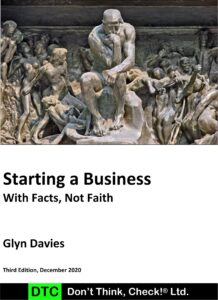
Compared to the productivity, effectiveness, and efficiency of machines and computers, the human resource still has some ways to improve.
Drucker 1973 used effectiveness to compare the results of activities to the achievement of objectives (i.e., “are we doing the right things?”), and efficiency with the yield of outputs compared to the input of resources such as time and energy (i.e., “are we doing things right?”).
Compared to machines, humans will never be as productive, because by definition, that is why we invented them. As for effectiveness, a machine has little choice as to what it gets to make, and efficiency goes hand-in-hand with productivity.
Humans on the other hand have choices as to what they do and how they do it, i.e., they have choices regarding their effectiveness and efficiency.
Managers and colleagues exercise choices that not only affect themselves but the effectiveness and efficiency of others as well.
None of this should be a revelation, but what are you doing to improve the effectiveness and efficiency of yourself, your colleagues, and therefore your organisation?
Adapted from Peter Drucker, The New Society.
Drucker, Peter F., Management: Tasks, Responsibilities, and Practices (New York: Harper & Row, 1973), pp. 45–46.



